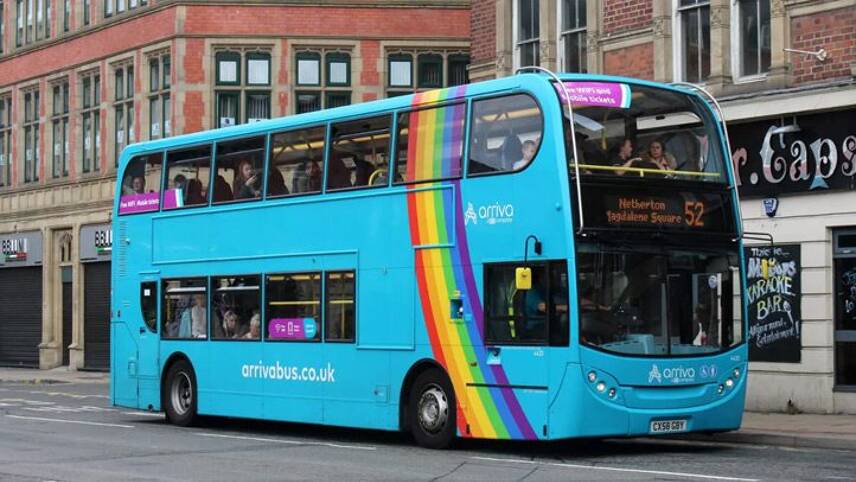Register for free and continue reading
Join our growing army of changemakers and get unlimited access to our premium content

The new target builds on those already set separately by individual bus firms. Image: Arriva
The commitment was made today (10 September) by industry body the Confederation of Passenger Transport (CPT), which represents the likes of Arriva, Go Ahead, National Express, Stagecoach and First Group.
It will see Confederation members develop plans to purchase only zero-emission vehicles for use in cities and low-emission vehicles for use in more rural UK locations over the next five years.
Such plans, the CPT claims, will help it to ensure that 5.4 billion journeys are made by bus in the UK each year by 2030, up from 4.4 billion at present, decreasing the public’s reliance on privately-owned petrol and diesel cars.
In order to drive this modal shift, the body will be investing in smart ticketing systems and exploring lower fares for apprentices, jobseekers and other concessions – as well as hydrogen-powered, hybrid and fully-electric buses.
Graham Vidler, the CPT chief executive said: “Buses are already the cleanest form of road transport and have a crucial role to play in tackling environmental issues and helping to meet important targets on improving air quality and reducing carbon emissions.
“If everyone switched just one car journey a month to bus, there would be one billion fewer car journeys and a saving of two million tonnes of CO2 a year.”
Policy challenges
However, Vilder added that CPT members would only be able to reach its new 2025 targets with the “right support from Government”.
Transport is notably the UK’s highest-emitting sector after it overtook power generation for the first time since records began in 2016.
Amid a slow transition towards fully electrifying petrol and diesel passenger cars, compounded by continually high technology prices and slow investment in supporting infrastructure, Friends of the Earth (FotE) is estimating that at least one-fifth of car journeys made within the UK annually will need to be undertaken using public transport by 2021 if the nation is to meet its fourth and fifth carbon budgets, the latter of which runs from 2028-2032.
This is because the electric vehicle (EV) revolution appears to be gripping the bus sector far more rapidly than the car and van sectors.
In order to drive this change, FotE is recommending that free bus travel is offered to all under-30s “as soon as possible”, with the scheme widening in the years leading up to 2032.
Such a move would cost around £3bn annually but would enable local authorities to spend less on roads, according to the campaign group. The body notes that more than 100 cities across the world are now offering free bus travel.
The CPT has not taken this advice on board in its latest announcements but has vowed to help its members and their local authority clients to develop new fare schemes which will incentivise jobseekers, apprentices and students to use buses more often.
It has also pledged to help its members address the challenges of congestion in cities, running regular and reliable routes in rural areas and developing low-carbon solutions in regions where supporting infrastructure is sparse.
Government funding
In related news, the UK Government has this week unveiled a new £400m funding pot aimed at bolstering EV charging infrastructure.
The first £70m of the fund will be used to install 3,000 charging points across the nation, more than doubling its current charger stock of around 2,200 publicly available charge points.
All of these charging points will be fitted with rapid charge technology, which Minister claim can recharge a hybrid-electric family car in as little of 20 minutes.
The fund will also be used to undertake a review into how and where charging points should best be provided to serve major road networks – notably at service stations.
“It’s fantastic there is already a rapid charge point at almost every motorway service station, and now more charging stations than petrol stations – but I want to see thousands more charge points installed across the UK,” Transport Secretary Grant Shapps said.
“This fund will help drum up further investment in charging infrastructure from the private sector, so charging an electric car becomes as easy as plugging in a smartphone.”
Sarah George


Please login or Register to leave a comment.